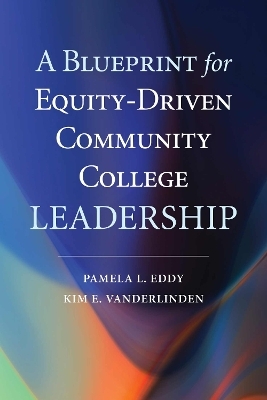
A Blueprint for Equity-Driven Community College Leadership
Seiten
2024
Harvard Educational Publishing Group (Verlag)
978-1-68253-925-5 (ISBN)
Harvard Educational Publishing Group (Verlag)
978-1-68253-925-5 (ISBN)
Discerning guidance for advancing social justice and addressing persistent opportunity gaps in US higher education. Community colleges are uniquely positioned to enact impactful equity-informed agendas that can promote social change, remedy inequitable and unjust structures and systems, and build opportunities for all students to be successful.
Expert advice and effective strategies for community college leaders who endeavor to embed equity and social justice in institutional policies, practices, and structures
Pamela Eddy and Kim VanDerLinden offer discerning guidance for advancing social justice and addressing persistent opportunity gaps in US higher education in A Blueprint for Equity-Driven Community College Leadership. Eddy and VanDerLinden argue that, given the diverse population of students that community colleges serve, these institutions are uniquely positioned to enact impactful equity-informed agendas that can promote social change, remedy inequitable and unjust structures and systems, and build opportunities for all students to be successful. They encourage presidents, provosts, directors, and faculty at community colleges to seize the chance afforded by COVID-19 upheavals to address urgent issues of equity on campus.
Drawing from interviews and surveys of longtime community college leaders as well as literature on community college leadership and social justice initiatives, Eddy and VanDerLinden outline a three-part model that can strengthen collaboration among institutional leaders and create resilient, equitable communities of practice. They advise stakeholders to increase self-awareness through reflective exercises and examination of personal bias. Their model directs leaders to develop contextual competency by evaluating external forces that influence focus in institutions of higher education, including employer and community needs; state and national campaigns and calls for graduates; and backlash against diversity, equity, and inclusion (DEI) measures.
This insightful work gives community college leaders across all positions and titles an introduction to strategies to promote organization-level change.
Expert advice and effective strategies for community college leaders who endeavor to embed equity and social justice in institutional policies, practices, and structures
Pamela Eddy and Kim VanDerLinden offer discerning guidance for advancing social justice and addressing persistent opportunity gaps in US higher education in A Blueprint for Equity-Driven Community College Leadership. Eddy and VanDerLinden argue that, given the diverse population of students that community colleges serve, these institutions are uniquely positioned to enact impactful equity-informed agendas that can promote social change, remedy inequitable and unjust structures and systems, and build opportunities for all students to be successful. They encourage presidents, provosts, directors, and faculty at community colleges to seize the chance afforded by COVID-19 upheavals to address urgent issues of equity on campus.
Drawing from interviews and surveys of longtime community college leaders as well as literature on community college leadership and social justice initiatives, Eddy and VanDerLinden outline a three-part model that can strengthen collaboration among institutional leaders and create resilient, equitable communities of practice. They advise stakeholders to increase self-awareness through reflective exercises and examination of personal bias. Their model directs leaders to develop contextual competency by evaluating external forces that influence focus in institutions of higher education, including employer and community needs; state and national campaigns and calls for graduates; and backlash against diversity, equity, and inclusion (DEI) measures.
This insightful work gives community college leaders across all positions and titles an introduction to strategies to promote organization-level change.
Pamela Eddy is the associate provost of faculty affairs and faculty development and a professor of higher education in Educational Policy, Planning, and Leadership at William & Mary. She serves as a consultant for campuses, system offices, and on funded grants regarding strategies to support community college student success and to promote leadership development. Kim VanDerLinden is a clinical assistant professor at the University at Buffalo (SUNY) in the Interdisciplinary Social Sciences program. Her research is focused on assessment strategies and organizational processes that support student success, as well as administrative leadership and the ways in which data-driven leadership can transform higher education.
| Erscheinungsdatum | 17.09.2024 |
|---|---|
| Verlagsort | Cambridge |
| Sprache | englisch |
| Maße | 152 x 229 mm |
| Themenwelt | Sozialwissenschaften ► Pädagogik ► Didaktik |
| Sozialwissenschaften ► Pädagogik ► Erwachsenenbildung | |
| ISBN-10 | 1-68253-925-3 / 1682539253 |
| ISBN-13 | 978-1-68253-925-5 / 9781682539255 |
| Zustand | Neuware |
| Informationen gemäß Produktsicherheitsverordnung (GPSR) | |
| Haben Sie eine Frage zum Produkt? |
Mehr entdecken
aus dem Bereich
aus dem Bereich
achtsame und responsive Handlungsmöglichkeiten
Buch | Softcover (2024)
Herder (Verlag)
18,00 €
Sprachbildung im und durch Sachunterricht
Buch | Softcover (2024)
Kohlhammer (Verlag)
37,00 €


